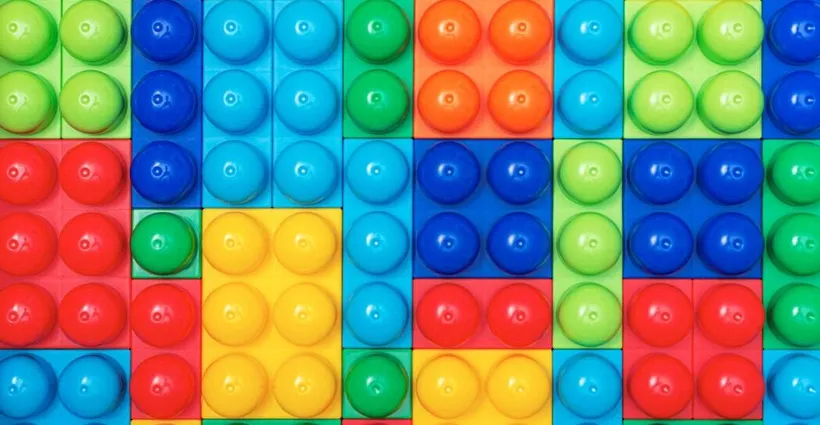Unlocking Little Minds One Game at a Time
In today’s fast-paced digital world, it’s easy for parents to overlook the humble puzzle or classic board game in favor of flashy apps and cartoons. But did you know that traditional games and puzzles are some of the best tools for a child’s growth? From improving cognitive skills to building emotional intelligence, games and puzzles offer more than just entertainment—they’re powerful tools for development.
At KidsNeedsHub.com, we believe in nurturing young minds through play. Let’s dive into why games and puzzles should be an essential part of every child’s daily routine.
1. Boosting Brain Power: Cognitive Benefits of Games and Puzzles

Games and puzzles are like mental workouts for kids. Whether it’s solving a jigsaw puzzle or strategizing in a board game, children develop essential thinking skills without even realizing it.
Key cognitive benefits include:
- Problem-solving skills: Puzzles teach kids to think critically, break down problems, and test solutions.
- Memory improvement: Matching games and logic puzzles strengthen short-term memory and recall.
- Spatial awareness: Jigsaw puzzles help children understand shapes, positioning, and how pieces fit together—a key skill in early math.
- Concentration and patience: These activities require focus and persistence, two qualities that are valuable in school and life.
2. Fine Motor Skills and Hand-Eye Coordination
Games that involve physical interaction—like stacking blocks, fitting puzzle pieces, or maneuvering game tokens—are excellent for refining motor skills.
How they help:
- Puzzles develop fine motor skills as kids grip, twist, and place small pieces.
- Board games and construction sets enhance hand-eye coordination, which is crucial for tasks like writing and tying shoelaces.
These skills may seem small, but they lay the foundation for everyday activities and academic readiness.
3. Emotional Development: Building Confidence and Resilience
Every parent knows that life doesn’t always go as planned. Games and puzzles teach children how to handle both success and failure in a safe, supportive environment.
What kids learn emotionally:
- Confidence: Completing a puzzle or winning a game gives kids a sense of achievement.
- Resilience: Losing a game or getting stuck on a tricky puzzle teaches persistence and emotional regulation.
- Delayed gratification: Many puzzles and games take time and effort—great for teaching kids that good things are worth the wait.
These moments of challenge and triumph are critical for building self-esteem and emotional intelligence.
4. Social Skills: Learning to Play with Others
Many games require more than one player, and this opens up a world of social learning. Cooperative games, in particular, help kids learn how to work as a team and communicate effectively.
Social lessons kids pick up:
- Taking turns: Kids learn to wait patiently and understand fairness.
- Following rules: Every game has rules, which helps children respect structure and guidelines.
- Empathy and sportsmanship: Win or lose, games provide an opportunity to show kindness, celebrate others, and express feelings appropriately.
These skills are essential for school life, friendships, and family dynamics.
5. Stimulating Creativity and Imagination
Not all puzzles are about numbers and logic. Many games allow for open-ended play and storytelling, encouraging creativity and imagination.
- Games like charades or story-building card games boost imaginative thinking.
- Puzzle games with colorful, themed pieces can spark curiosity about animals, nature, geography, and more.
- Building games like LEGO and magnetic tiles let kids design and invent, improving both creative and analytical thinking.
Creative play not only entertains but also prepares children to think outside the box in future problem-solving situations.
6. Early Math and Literacy Skills
Believe it or not, puzzles and games can lay the groundwork for reading, writing, and math.
- Letter and word puzzles help with letter recognition and vocabulary.
- Counting games teach numbers, addition, subtraction, and patterns.
- Sorting and sequencing puzzles teach logic and order—important for both math and reading comprehension.
These early skills create a smooth transition into school subjects, especially when introduced in a fun and relaxed setting.
7. Technology-Free Time: A Healthy Balance
In a world where screens dominate so much of children’s attention, puzzles and hands-on games offer a much-needed tech-free alternative. They encourage face-to-face interaction, reduce overstimulation, and provide tactile experiences that digital devices simply can’t replicate.
Playing physical games can help kids:
- Develop a longer attention span
- Sleep better
- Build stronger family connections
8. The Bonding Power of Play
One of the most underrated benefits of games and puzzles is how they bring people together. Whether it’s a cozy family game night or siblings working on a puzzle together, these activities create shared experiences and lasting memories.
- Strengthens parent-child relationships
- Teaches cooperation and communication between siblings
- Encourages positive peer interactions during playdates or school activities
Quality time doesn’t have to be elaborate. A simple game can lead to laughter, learning, and love.
Final Thoughts: Play Is Not Just Fun—It’s Fundamental
At KidsNeedsHub.com, we encourage every parent and caregiver to embrace the power of play. Games and puzzles aren’t just time-fillers; they’re foundational tools that shape your child’s brain, personality, and relationships.
So next time you’re looking for a way to entertain your little one, skip the screen and grab a puzzle or board game instead. You’re not just playing—you’re investing in your child’s future, one piece at a time.
Want to Know the Best Games for Your Child’s Age?
Check out our Game and Puzzle Recommendations for every developmental stage—from toddlers to tweens!
Explore. Play. Grow. — Only on KidsNeedshub.com
